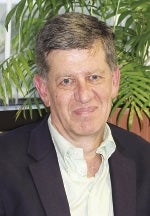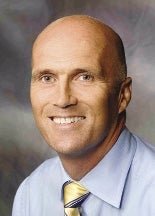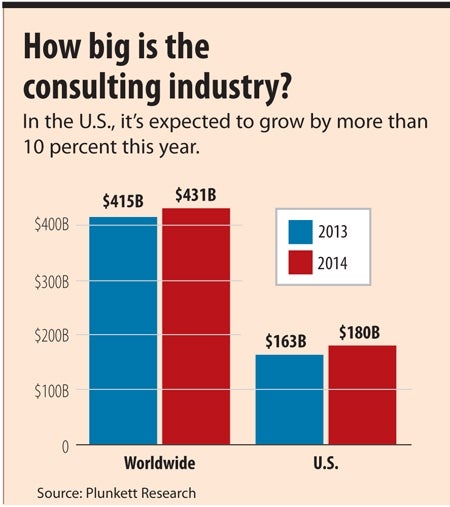Consulting is their business, and business is good
There's not much about running a business that's gotten simpler over time. Supply chains, computer systems, government regulations, you name it — dealing with issues outside a company's core business could take up all of a CEO's time.
That may explain why consulting, a field that includes everything from a one-man business coaching firm to multinational giants like Bain and Co. or the Boston Consulting Group, is expanding rapidly. From 2013 to 2014 alone, global revenues for the consulting industry grew more than 10 percent to $431 billion, according to market and industry information firm Plunkett Research.
Jobs in the industry are growing as well. The U.S. Bureau of Labor Statistics predicts that analyst positions — which are often held by consultants — will grow fast over the next 10 years. The ranks of market research analysts, in particular, could increase 32 percent between 2012 and 2022.
Consultants are a varied lot, but many are former executives sharing a lifetime of knowledge with others. Here are two views of the consulting life as a second career.
Steve Powers, Intrepid Advisors and First Beacon Advisory Group, Marlborough
For 14 years before he became a consultant, Steve Powers was vice president of engineering at Walker Magnetics in Worcester. There, he met an engineer with his own consulting business who helped Walker with the documentation necessary to get a federal tax credit for its research and development operations. Powers noticed the consultant spent his days learning about the equipment and processes that various companies used, something that sounded like kind of an ideal gig.
“An engineer is pretty interested in other technology,” he said. “It seemed pretty interesting and exciting.”
Years later, Powers got the chance to find out for sure. Through some industry connections, he ended up working for, and eventually owning, the consultancy, which became his current business, Intrepid Advisors.
The firm, which now has 10 employees, works with manufacturing and technology companies all over the country. Powers and his staff offer a mix of accounting and engineering expertise, working with the client companies' engineers to see how they're developing new technology and then creating the documentation they need to take advantage of federal and state tax credits.
“It's a really complicated tax credit,” he said. “The vast majority of the accounting firms haven't got a clue how to deal with these things.”
Powers is also co-owner of a partnership that tries to make it easier for businesses to get all sorts of help. First Beacon Advisory Group is made up of three owners plus a number of “associate members.” There's a financial advisor, a marketing expert, an insurance agent, a mergers-and-acquisitions expert and a human resources consultant, for example. Together, the firm can assess the issues a company is experiencing, then provide specialized advice about relevant topics.
To Powers, being a consultant is more work than holding a position in a big company, but it's also much more rewarding.
“I'm working my you-know-what off 60 to 70 hours a week, but I wouldn't change it for a 40-, 50-hour week,” he said. “Every day is a challenge but it's not stressful. ... I sleep a lot better doing this than I used to working at a big company.”
Bill Sex, New England Coaching
As president of New England Coaching in Marlborough, Bill Sex sees the consulting industry from two vantage points: He's a consultant to businesses himself, working with owners who want to sell their companies as they go from scoping out the landscape to closing a deal and moving on, ane he offers assistance to executives who need to work through an operational problem or improve their communications skills. At the same time, he's also a trainer who helps other former executives the transition into consulting.
Before becoming a consultant, Sex worked for Betatherm Corp., a Shrewsbury maker of temperature sensors. The expertise in business operations he gained there helps him in his work today, he said, but so does his lifetime of experience seeing how people operate on the job.
“In my previous work, I always was managing people, and I always was sort of a student of psychology,” he said. “I understand the dynamics of business, but what is more important is I connect with the clients and they trust me.”
When he works with an owner who wants to sell a company, Sex doesn't just offer pointers on the M&A market. He starts out by talking with them about their reasons for selling and what they hope to get out of a deal. Then, he works with them to adjust their current business models to make their companies most appealing to potential buyers. After that, he helps an owner navigate the sales process, working with accountants, lawyers and brokers and helping with negotiations over sale terms.
“I'm the sort of glue that holds all those different pieces together,” Sex said. “I don't pretend to be the lawyer or the accountant.”
Sex said his focus on the psychological side of consulting is something he shares with the new consultants he trains. The idea is to be a coach, helping executives and business owners develop skills and move their own ideas forward, rather than simply acting as an outside expert telling the insiders what to do.
“The coaching piece is really what I like to refer to as optimum consulting,” he said. “The knowledge is the consulting piece but the coaching is how do you impart the knowledge.”













0 Comments